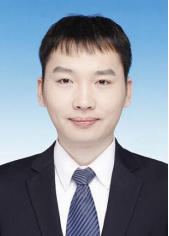I. Content of this session
Functional Near-Infrared Spectroscopy (fNIRS) is one of the key technologies for studying the neural mechanisms of cognitive processing in the brain, which is a portable brain imaging technology. fNIRS spatially locates brain regions associated with specific functions or behaviors by measuring the level of brain oxygenation and interpersonal neural synchrony indicators, revealing the potential neural mechanisms underlying the effects of different factors on cognitive processing.
fNIRS not only fulfills traditional brain imaging research tasks but also has advantages such as low cost, low noise, low restrictiveness, high tolerance to head motion, and support for multi-brain synchronous scanning. It is suitable for special subject groups (infants, patients, elderly populations, etc.) and high ecological validity natural contexts (daily life, sports driving, face-to-face interactions, etc.), and has been widely used in important emerging hot fields. For example, fNIRS research can be used to track the early development of neural circuits in infants, assist in the clinical assessment and neural rehabilitation of neurological and psychiatric disorders. In the field of language-related research, fNIRS has unique advantages in investigating the neural mechanisms of auditory perception, speech production, development of children's language abilities, language assessment and rehabilitation of reading disorders and aphasia, face-to-face communication, etc. fNIRS multi-brain synchronous scanning research focuses on interpersonal neural coupling mechanisms in teaching interactions, social decision-making, and other contexts. The influence of fNIRS is gradually spreading to various interdisciplinary fields such as developmental psychology, educational psychology, journalism and communication, economics and management, linguistics, etc.
This workshop will introduce the latest research progress of fNIRS in cutting-edge hot fields, combined with easy-to-understand examples, to help participants deepen their understanding of the principles and applications of fNIRS, and master data collection and analysis methods.
II. Schedule
09:00–10:30: fNIRS 's introduction to Technology and Imaging Principles
10:30–10:45: Coffee break
10:45–12:00: Foreword Application 1
12:00–13:30: Lunch and break
13:30–15:30: Experimental Design
15:30–15:45: Coffee break
15:45–16:30: Data Collection and Localization
16:30–16:40: Coffee break
16:40–17:30: Foreword Application 2
17:30–18:30: Q&A
09:00–09:30: Principles of Data Analysis 1
09:30–09:40: Coffee break
09:40–11:00: Principles of Data Analysis 2
11:00–11:10: Coffee break
11:10–12:00: Hands-on Practice 1
12:00–13:30: Lunch and break
13:30–15:00: Hands-on Practice 2
15:00–15:15: Dicussion
15:30–17:00: Hands-on Practice 3
17:00–18:30: Hands-on Practice on Computers, Laboratory Visits, Q&A
Recommended reading list:
"Near-Infrared Spectroscopy Brain Function Imaging", Science Press, December 2020, Zhu Chaozhe
III. Introduction of Experts

Zhu Chaozhe is a professor and doctoral supervisor at the State Key Laboratory of Cognitive Neuroscience and Learning at Beijing Normal University. He is also the principal investigator (PI) of the Brain Imaging and Neural Modulation Laboratory. His main research focuses on near-infrared spectroscopy (fNIRS) and theoretical research on neural modulation related to transcranial magnetic stimulation (TMS), as well as the development of new technologies. He has presided over key projects funded by the National Natural Science Foundation of China and major instrument projects funded by the Ministry of Science and Technology. He has published over 90 SCI papers in journals such as Science Advances and Brain, with over 16,000 citations (H-index=48). He has been granted six invention patents, including one in the United States. Professor Zhu was included in the 2020 Elsevier list of China's Most Cited Researchers. He is also the author of the national 13th Five-Year Plan book "Functional Brain Imaging by Near-Infrared Spectroscopy" (published by Science Press).

Lu Chunming is a professor at the State Key Laboratory of Cognitive Neuroscience and Learning at Beijing Normal University, as well as the deputy director of the IDG/McGovern Institute for Brain Research, the head of a research group, and a doctoral supervisor. He has presided over major projects, general projects, and excellent young scientist projects funded by the National Natural Science Foundation of China. His research focuses on language communication and social interaction, and he has published over 60 papers in journals such as Nature Communications and PNAS. Currently, he serves as the Communications Councilor of the International Society for Optics and Photonics, the Secretary-General of the Cognitive Neurobiology Branch of the Chinese Neuroscience Society, a member of the Committee for Popular Science and Continuing Education of the Chinese Neuroscience Society, and an executive director of the Learning Science Research Branch of the China Association of Higher Education.

Zhang Zong is a lecturer in the Department of Psychology at Tianjin Normal University. He obtained his doctorate from the State Key Laboratory of Cognitive Neuroscience and Learning at Beijing Normal University. His research focuses on spatial localization and data processing of near-infrared spectroscopy (fNIRS), as well as the investigation of blood oxygen signal characteristics during neuromodulation techniques (transcranial magnetic stimulation and electrical stimulation) using synchronized fNIRS. He has published two SCI papers as the first author in journals such as Brain Stimulation and Neurophotonics, and has co-authored seven other papers. He received the Special Award for Academic Innovation from Beijing Normal University in 2021. He is also a key developer of the NIRS-KIT software for near-infrared data analysis.

He Tao is a full-time researcher at the Beijing Language and Culture University's International Collaborative Base. He obtained his doctorate from Radboud University in the Netherlands. His main research areas include audiovisual integration, perceptual processing, and the neural mechanisms of attention and anticipation. His research methods include psychophysics, eye tracking, near-infrared spectroscopy, functional magnetic resonance imaging, and magnetoencephalography. His recent research has been published in multiple core journals such as SSCI/SCI. As the principal investigator, he has undertaken research projects funded by the Humanities and Social Sciences Youth Project of the Ministry of Education, the Beijing Natural Science Foundation Youth Project, and the China Postdoctoral Science Foundation. He has also participated as a key member in major projects such as the "Brain Science and Brain-like Research" project funded by the National Natural Science Foundation of China.

Jiang Yihan is an assistant researcher at the Beijing Language and Culture University's Innovative International Collaborative Base for Language Cognitive Science. She obtained her doctorate in psychology from Beijing Normal University. Her research areas include 1) targeted localization and denoising methods for fNIRS, and 2) the fNIRS multi-brain synchronization mechanisms involved in interpersonal communication and cultural identity processes. Her research has been published in SCI journals such as NeuroImage and Brain Stimulation, with eight fNIRS-related SCI papers. She has participated in multiple key and general projects funded by the National Natural Science Foundation of China. She teaches courses such as "Principles and Applications of Near-Infrared Spectroscopy Imaging Technology" and "Matlab" for graduate students. She has also contributed to the writing of the "Functional Brain Imaging by Near-Infrared Spectroscopy" book and is responsible for writing the fNIRS section of the "Neural Circuits and Brain Diseases" book.
IV. Training fees
Technical training registration fee: 3000 ¥/person, full-time students 2500 ¥/person. The registration fee includes material fees and lunch expenses. Other expenses are self-funded.

V. Registration and Payment
Please scan the QR code to obtain the registration form and send it to 111center@blcu.edu.cn, with the title named "Unit + Name + fNIRS Workshop Registration". We will provide a payment link for payment.
VI. Notes
1. After paying the registration fee, if you cannot participate on time due to personal reasons, the fee will not be refunded.
2. Students refer to doctoral students, master's students, and undergraduate students, and need to provide a valid student ID.
3. Participants are required to bring a Windows system computer. If there are no special circumstances, please do not bring an Apple computer. If only an Apple computer is available, please install the Windows system in advance using Bootcamp.
4. If you are unable to attend offline, the workshop provides online participation methods.
Ⅶ. Host Unit
Beijing Language University's CCSL is a scientific research institution with internationalization and openness, focusing on language cognitive science and majoring in Chinese second language acquisition and cognition, language cognitive neuroscience, and language cognition and neuromorphic research. The "Key Laboratory of Language Cognitive Science" led by the base has been successfully approved and put into construction, with the support of the Ministry of Science and Technology and the Ministry of Education's "Higher Education Discipline Innovation and Intelligence Introduction Plan" as the platform.